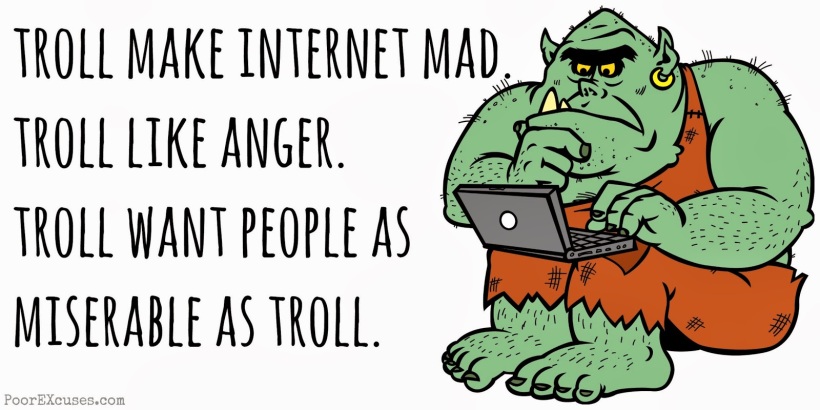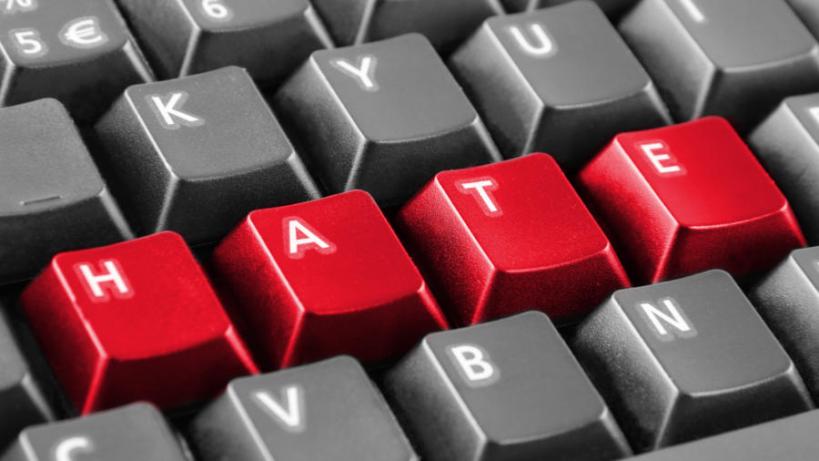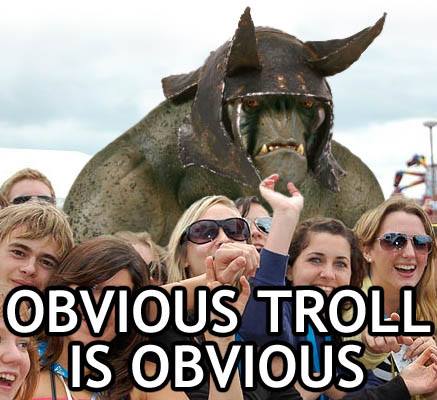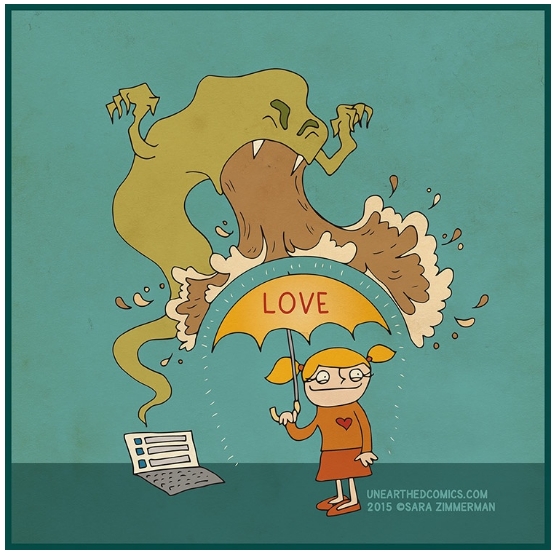Daniel Skyle © 2016
Detta är en artikel i vår serie om hat på nätet och om de möjliga lösningarna på det. Den här artikeln är en första och kortare text som introduktion. Vi kommer också att titta på svenska polisens definitioner av hatbrott och ge dig enkla tips för att hjälpa dig med hur du lättast anmäler hatbrott på nätet till polisen.
Du som vill läsa mer hittar artiklar på den här bloggen där det står (längre version). I dem täcker vi ämnet mer på djupet och erbjuder fler vinklar av analys. Ämnena vi lägger upp här på bloggen kommer i allmänhet att ha en första kortare introduktionstext som denna, och sedan en längre, med mer analys och fördjupning.
Hat på nätet breder verkar försöka breda ut sig allt mer i världen just nu. Jämfört med ett lands hela befolkning är det bara en försvinnande liten grupp människor som använder sig av näthat, men de försöker vara desto mer högljudda för att se ut som om de är fler.
Bakom näthat ligger också ofta en medveten politisk ambition, men intressant nog känner de som använder näthat sällan till hur noggrant de har blivit manipulerade till att göra det, och för vems syften.
”Jag tror att en anledning till att folk håller fast vid sitt hat så envist är för att de känner inuti att om hatet försvinner, blir de tvungna att ta tag i sin egen smärta.”
– James Baldwin

Hur hat kan spridas till en större publik via internet
Hat är förstås inget nytt i världen: den stora förändringen som skett är att internet och sedan sociala media dök upp. Det internet vi är vana vid idag är ju mycket ungt – det såg sin uppsving börja för knappt tjugo år sedan.
De som sprider hat använder ofta plattformar som hemsidor och sociala media, till exempel Facebook och Twitter. De manipulerar också medvetet sökresultaten på olika sökmotorer, till exempel på Google. Vi kommer att titta närmare på detta i en kommande artikel här på EdgeWise.
Tidigare i mänsklighetens historia har hat sällan kunnat spridas speciellt långt. Detta började ändras med tidningar och massmedia, då enstaka ägare till dem hade (och har) egna syften, och faktiskt kunde tillåta vinklad information och hat att spridas till läsare på en större scen.
Idag, på grund av internet, kan en person som vill spy galla från sitt eget liv över andra människor skriva kommentarer som kanske kan läsas direkt i en rasistisk Facebookgrupp, eller i ett helt land, eller över hela jordklotet.
Många av de som utsatts för hat på nätet kan få djupa känslomässiga sår som varar under mycket lång tid.
Det är upp till varje människa att ta ansvar för sina handlingar. Allt du skriver på internet är ditt ansvar: du väljer själv om du skriver något som är negativt för en annan människa eller något som är positivt.
Hatbrott är en brottslig handling i Sverige. Både näthat och hatbrott kan skada människan på andra sidan skärmen djupt, ett sår som kan förändra deras liv allvarligt till det sämre, i värsta fall så långt att de skadar sig själva eller till och med begår självmord.
”Hat ser ut som alla andra ända tills det ler.”
– Tahereh Mafi
Vad är näthat egentligen?
Det är bra att komma ihåg vad näthat faktiskt är. Näthat kan vara i form av mobbing och nedsättande kommentarer, så kallade cyberbullying, men det kan också vara i form av attacker som går in under rubriken hatbrott i Sverige.
Du kan läsa en kortare introduktion till skillnaden på dem här, på Institutet för Juridik och Internet, där du också kan få hjälp med anmälningar du gör. http://www.juridikinstitutet.se/nathat.
Här kan du läsa svenska Polisens officiella definition av hatbrott:
”Beskrivning av hatbrott
Hatbrott avser brotten hets mot folkgrupp och olaga diskriminering. Det kan även vara andra brott där ett motiv för brottet har varit att kränka en person, en folkgrupp, eller en annan sådan grupp av personer på grund av:
-
ras,
-
hudfärg,
-
nationellt eller etniskt ursprung,
-
trosbekännelse,
-
sexuell läggning,
-
eller annan liknande omständighet.
Du måste inte passa in på någon av dessa beskrivningar för att bli offer för ett hatbrott. Det räcker med att gärningspersonen tror att du har någon av egenskaperna, till exempel att han eller hon tror att du är homosexuell.”
Citatet kommer från den här artikeln hos Polisen, där du också kan läsa den fulla texten om hatbrott: https://polisen.se/Lagar-och-regler/Om-olika-brott/Fakta-om-hatbrott/
Anmäl alltid näthat och hatbrott
Sverige ligger lite längre bak än flera andra europeiska länder i att hantera och lösa näthat just nu, men man har börjat fokusera mer på det både på regeringsnivå och inom svenska Polisen. Del av Polisens arbete med det är bland annat de så kallade Hat- och Demokratibrottsgrupperna, och andra enheter som har börjat fokusera mer på näthat och hur det syns, inkluderat på Facebook.
Ett tips som de ger är att om du utsätts för näthat av någon sort är att alltid polisanmäla det.
Näthat och hatbrott kan både ha varit skrämmande och göra oss förvirrade, men det är viktigt att alltid anmäla det till polisen.
Kom ihåg att samla bevis steg för steg, som att ta en skärmdump av det som skrevs, skriva ner en logg av vad som hänt, och ta foton eller skärmdumpar av meddelanden och sms innan någon tar bort dem. Ju mer du har, desto lättare är det för Polisen att göra något åt det.
Det är inte alltid säkert att Polisen kan lösa problemet, men det är däremot alltid viktigt att anmäla det. Anmäler man det syns det i statistiken, och om det är en person som gjort samma sak innan innebär varje anmälan att polisen får fler anmälningar på den individen och bygger upp ett allt stabilare fall att lämna vidare till åklagaren.
Du kan bland annat lämna in anmälan och få råd och stöd på Demokrati- och Hatbrottsgrupperna hos polisen. De finns i Malmö, Stockholm och Göteborg, och du når dem på 114 14. Fråga efter Demokrati- och Hatbrottsgruppen närmast där du bor.
http://www.svenskpolis.se/Artikelarkiv/Artiklar-2014/November-2014/Sa-jobbar-hatbrottsgruppen/

Varför är näthat så skadligt?
Många av de som blir utsatta för näthat känner att en anledning till att det kan påverka så mycket är att det ofta försöker riktas mot deras identitet.
Till exempel, om någon säger till dig, ”Jag tycker att när du pratar på telefon så talar du för högt. Var snäll och prata lägre” är det skillnad på det och om de säger, ”När du pratar så högt på telefon visar det att du är värdelös”.
Det första är en kommentar om ett beteende; det andra är formulerat som ett försök till att döma vem personen är, ett försök att döma deras själva existens. Om gör det och börjar säga negativa formuleringar om vem en person är som människa utifrån deras kön, sexuella läggning, trosbekännelse, nationella tillhörighet eller hudfärg, då kommer vi in på inte bara näthat utan hatbrott.
Polisen fortsätter sin text med att påpeka att det här gäller andra sorters brott också, där näthat bara är ett brott, och det kan vara vad som helst som sker (fortsatt från länken ovan):
”Hatbrott kan ge straffskärpning
Den som döms för ett brott med hatbrottsmotiv kan få en straffskärpning i samband med att hon eller han döms för den brottsliga gärningen. En person som klottrat eller misshandlat någon kan alltså få ett strängare straff om gärningen bedöms som ett hatbrott.
Vanligast med ofredande och olaga hot
Olaga diskriminering och hets mot folkgrupp är hatbrott i sig, men vilket brott som helst kan bedömas som ett hatbrott om det grundar sig på gärningspersonens negativa inställning till någon av de uppräknade grupperna. Hatbrott kan därför vara allt från klotter till mord. Enligt Brottsförebyggande rådet är de vanligaste hatbrotten ofredande och olaga hot.”

Hur påverkar näthat samhället? En kort inblick i Krossade Fönsterteorin
Krossade Fönster-teorin (The Broken Windows Theory) är en teori inom Sociologi som först formulerades på 1980-talet. Den har använts inom polisväsende och inom forskning sedan dess.
Grundidéen är mycket självklar: om en fönsterruta blir krossad i ett kvarter och man låter bli att fixa den, så kommer människorna som bor där sakta att börja se det som allt mindre viktigt att ta ansvar för sina handlingar i området.
Låter man bli att fixa det första problemet så kommer det antagligen att fortsätta sprida sig till att bli en till krossad fönsterruta, sedan sopor slängda vid trottoaren, dåligt beteende mot andra i området, graffitti, droghandel, brottslighet etc. Man kan likna det lite vid ett virus som när det väl har en patient kan sprida sig till andra runt dem.
Om man börja utföra näthat så sprider det sig: det skadar personen det är riktat mot och deras liv, det sprider sig till deras familj och till de familjen har kontakt med. Tillåter man näthat att fortgå är risken också att det blir allt mer accepterat att göra så av en liten grupp (de som krossar fönsterna i kvarteret) och som i sitt stöd av varandra försöker glömma att vad de gör faktiskt är ett brott.
Sker det, kan den gruppen sedan fortsätta säga sådana saker till andra också i sin vardag, eller begå andra hatbrott genom att fysiskt ge sig på invandrare, homosexuella eller folk från olika nationaliteter, etc.
Krossade Fönsterteorin gäller både på nätet och i verkligheten. På båda ställena kan det där första krossade fönstret/hatiska kommentaren skapa fler om man låter bli att reparera det och stoppa den som gjorde det från att göra det igen.
En lösning på detta som skapats på nätet i Sverige är Facebookgruppen #jagärhär, som snabbt vuxit sig mycket stor. De gör ett enormt bra jobb genom att gå in på olika kommentarsfält och hjälpa till med att reparera fönstret direkt på plats.
Du kan läsa mer om dem här: http://www.aftonbladet.se/svenskahjaltar/article23967515.ab
Och gå med i gruppen här: https://www.facebook.com/groups/548170525365320. Den är i skrivande stund redan uppe i mer än 43 000 medlemmar. Deras hashtag är #jagärhär.

Lösningar på näthat
Ingen vet exakt vad som löser näthat, eller hur man kan hjälpa till att läka dem som utför det så att de tappar behovet. Men del av själva kärnan i det är våra egna handlingar. Det är vi själva som tar ansvar för vad vi gör, både i vår vardag och när vi är ute på nätet.
Blir du utsatt för hatbrott? Då kan du ringa 114 14 och fråga efter Demokrati- och Hatbrottsgrupperna, eller ringa 112 om det är akut. Polisen har ytterligare en kort guide här som hjälper dig med hatbrott: https://polisen.se/Utsatt-for-brott/Olika-typer-av-brott/Utsatt-for-hatbrott
En bra fråga att komma ihåg när du är ute på nätet är alltid denna: trycker du gilla och kommenterar för att försämra mänskliga rättigheter, eller för att förbättra dem?
”Mörker kan inte fördriva mörker: bara ljus kan göra det. Hat kan inte fördriva hat: bara kärlek kan göra det.”
– Martin Luther King

Daniel Skyle © 2016. Daniel Skyle är journalist, författare och föreläsare. Han föreläser och skriver om källkritik och näthat, och forskar i näthat och lösningarna på det. Du kan läsa mer på Facebook på Språkbroar: https://www.facebook.com/sprakbroar. Han kan kontaktas för föreläsningar på information at sprakbroar punkt se.
